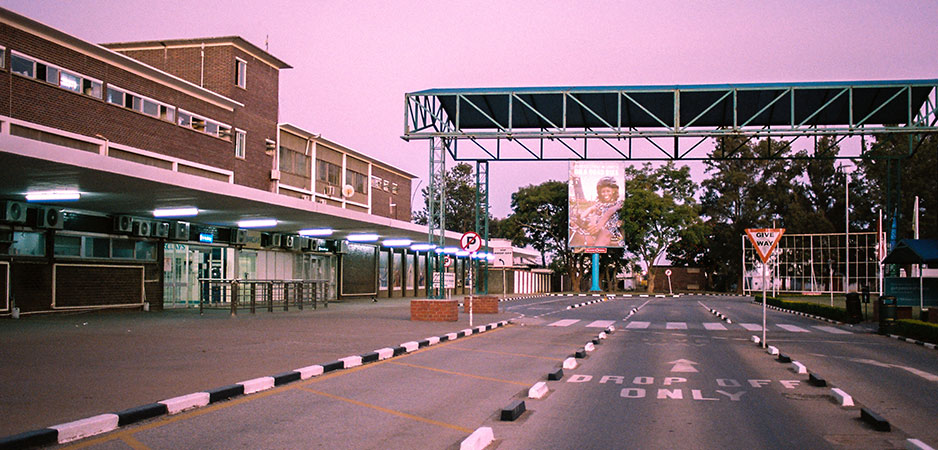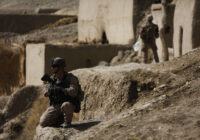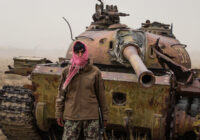For nearly two centuries, The Economist has been sitting in the saddle upon its high horse in London with an unfettered view across what was once the British Empire. This has enabled it to offer a clear-sighted, objective analysis of the world’s problems through the lens of its unassailable sense of economic orthodoxy.
Thanks to the journal’s diligent research, its readers can discover pertinent statistical information about evolving situations. For example, it can step up, as it is doing today, to offer its readers an assessment of the never-ending debt crisis in Africa, a continent that happens to have the highest levels of poverty while possessing the world’s richest concentration of natural resources.
Macron’s Problem With the News in English
In a brief article with the title “How to stop Zambia from turning into Zimbabwe,” The Economist summarizes the dire situation of the continent: “Because of covid-19, sub-Saharan Africa’s economy is expected to shrink by 3% this year, equivalent to 5.3% per person. The IMF reckons that six African countries are struggling to pay back loans and another 11 are thought to be at ‘high risk of debt distress.’”
Today’s Daily Devil’s Dictionary definition:
Debt distress:
The essential principle that drives capitalism by creating a permanent barrier between, on the one hand, those who control the financial system and exploit the existing networks of power and, on the other, those who simply possess the resources that fuel the financial system, serving to consolidate the control of its masters over the both the system and the resources.
Contextual Note
Around the time of the Gilded Age in late 19th-century America, vaudeville inaugurated a tradition of melodrama that turns around the trope of the villainous, mustachioed landlord who seeks to take advantage of a young lady whose family is struggling financially. Entering stage left, the villain bursts into the home and intones the fearful words: “You must pay the rent.” It’s a situation the audience immediately understands. This caricature functions as an archetype of economic and moral relations in a world defined by ownership and debt.
The Economist’s take on Zambia has no time for melodrama. It focuses on a purely political situation and avoids mentioning, let alone analyzing, the general political and historical context that explains how the Zambian or any other African economy is structured. All we need to know appears in the statistics cited and the description of the political personalities deemed responsible. And yet a glimmer of reality sometimes seeps through the cracks of this brief article. The essence of the moral lesson the journal wants us to take away appears in this sentence: “Economic growth has tumbled to 1.4% in 2019 owing in no small part to his government’s habit of scaring off investors by seizing mines and detaining mining bosses.”
This fact sits alongside various observations about President Edgar Lungu’s despotic tendencies, which include arresting opposition leaders, muzzling the press and last-minute ballot-stuffing in an election he won by only a few thousand votes. In other words, Lungu has all the obvious traits of a political villain, but definitely not of the kind that bursts on stage to demand the rent.
Like nearly every other African country in the 21st century, with the notable exception of Muammar Gaddafi’s Libya, Zambia understands that the obligation to service the debt is the equivalent of paying the rent. Before his demise at the hands of the French and American forces, Gaddafi had been preparing a hard African currency that he hoped might “free the continent from economic bondage under the dollar, the IMF and the French African franc, shaking off the last heavy chains of colonial exploitation.”
It took an invasion in 2011 and the provocation of a civil war that is still raging in Libya today to eliminate the threat to the West’s global control of African economies. Lungu is no Gaddafi. He has no vision for the African continent, no resources comparable to Libya’s oil reserves and no stockpile of gold that would allow him to change the course of things even in his own country. And yet he has dared to tell his creditors to hold fire and even sent the International Monetary Fund (IMF) packing.
The late David Graeber, an unconventional anthropologist who claimed the label of anarchist, has done more than anyone in recent years to change the modern perspective on debt. Whether his insight drawn from his analysis of the history of debt over the past 5,000 years will one day have an impact on our reigning economic system is an open question. One of Graeber’s key ideas is that the creative use of debt correlates very closely with the notion of trust.
The economist Michael Hudson, in his book “…and forgive them their debts,” noted that “the long sweep of history shows a universal principle to be at work: The burden of debt tends to exceed the ability of debtors to pay.” He notes that “today’s popular ideology blames debtors” while ignoring that debt stems “from economic strains that compel them to run up debts simply to survive.” The book reminds the reader that early civilization had a method for sanitizing the economy by systematically forgiving debt.
In the era of COVID-19, tens of millions of individuals find themselves in a situation similar to Zambia’s, heavily indebted with no prospect of emerging from it apart from acquiring more debt. One proposed solution that is now being taken seriously is universal basic income. Could the same solution be applied to African countries, allowing them to retain autonomy over the exploitation of their own resources?
Historical Note
The Economist published an article in May of this year with the title “Zambia was already a case study in how not to run an economy.” It recaps Zambia’s recent history leading up to the current situation. In it, we learn that “Zambia is arguably the developing country facing the biggest debt crisis in the era of covid-19.” The article reveals why The Economist feels it can justifiably blame Lungu and no one else for Zambia’s current problems. It is worth quoting their recap in full:
“Before his party, the Patriotic Front (PF), took power in 2011, Zambia’s economy was doing rather well. Over the previous two decades, the Movement for Multiparty Democracy (MMD) had unpicked the one-party socialism of Kenneth Kaunda, Zambia’s founding president. Copper mines, which generate 75 per cent of the country’s exports, were privatised before the commodity boom of the 2000s. After Zambia was forgiven some loans, its debt as a share of GDP fell from 104 per cent in 2005 to 25 per cent a year later. Economic growth averaged 7.4 per cent a year from 2001 to 2010.”
In other words, it is the classic story of a postcolonial nation tempted in the first phase of independence to nationalize its most valuable resources before waking up to realize that the powerful actors in today’s global economy are better equipped to exploit the wealth than Africans themselves. This leads to the “enlightened” decision by a new generation of politicians, encouraged — if not pressured — by the IMF to privatize the resources. The enlightened politicians are always duly rewarded for their pain.
Few will contest that Lungu’s economic competency is rudimentary at best and that his policies have produced largely negative results, compounded of course by the COVID-19 pandemic. The Economist nevertheless credits him with being “politically shrewd,” which, in the journal’s language means capable of finding ways to hold on to power while showing contempt for economic reality. But Lungu represents an attempt, however inept, at opposing the logic that has been imposed on all African nations for decades.
Reporting on the latest failure of Zambia to meet a deadline with an overdue Eurobond coupon, Al Jazeera signals that the significance of Zambia’s predicament extends far beyond the turpitudes of a local despot and reflects a general problem across the African continent: “With a number of African countries struggling with unsustainable debt, Zambia is being closely watched as a test case for how borrowers and creditors might navigate a broader debt crisis.” The Economist is calling those creditors to act. It even reminds us of a simple fact: “They wield a big stick.” As most Africans will admit, “Indeed they do.”
*[In the age of Oscar Wilde and Mark Twain, another American wit, the journalist Ambrose Bierce, produced a series of satirical definitions of commonly used terms, throwing light on their hidden meanings in real discourse. Bierce eventually collected and published them as a book, The Devil’s Dictionary, in 1911. We have shamelessly appropriated his title in the interest of continuing his wholesome pedagogical effort to enlighten generations of readers of the news. Read more of The Daily Devil’s Dictionary on Fair Observer.]
The views expressed in this article are the author’s own and do not necessarily reflect Fair Observer’s editorial policy.
Support Fair Observer
We rely on your support for our independence, diversity and quality.
For more than 10 years, Fair Observer has been free, fair and independent. No billionaire owns us, no advertisers control us. We are a reader-supported nonprofit. Unlike many other publications, we keep our content free for readers regardless of where they live or whether they can afford to pay. We have no paywalls and no ads.
In the post-truth era of fake news, echo chambers and filter bubbles, we publish a plurality of perspectives from around the world. Anyone can publish with us, but everyone goes through a rigorous editorial process. So, you get fact-checked, well-reasoned content instead of noise.
We publish 2,500+ voices from 90+ countries. We also conduct education and training programs
on subjects ranging from digital media and journalism to writing and critical thinking. This
doesn’t come cheap. Servers, editors, trainers and web developers cost
money.
Please consider supporting us on a regular basis as a recurring donor or a
sustaining member.
Will you support FO’s journalism?
We rely on your support for our independence, diversity and quality.






